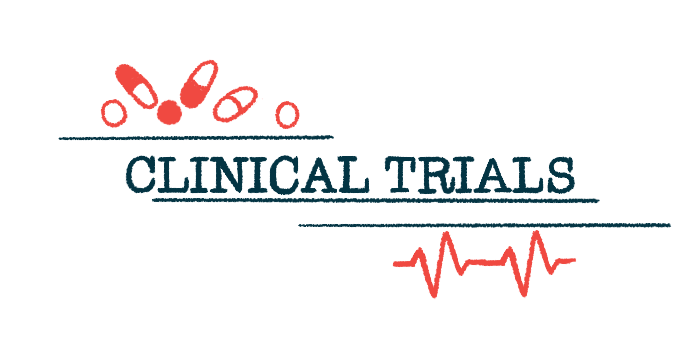Theranexus shares update of Phase 1/2 trial of Batten-1
Experimental therapy for juvenile Batten disease posts positive results after six months

Treatment for up to six months with Batten-1 — Theranexus’ novel therapy for juvenile Batten disease — reduced nerve cell death and stabilized patients’ motor symptoms.
That’s according to preliminary results from an ongoing Phase 1/2 clinical trial testing the experimental therapy.
The results will be presented at the 18th International Congress on Neuronal Ceroid Lipofuscinoses (NCL2023), to be held in Hamburg, Germany, Sept. 26-30.
“These preliminary results are very promising for this devastating disease for which there is currently no treatment. They reveal a convergence of positive signals with the reduction of neurofilaments and stabilization of motor symptoms after six months of treatment,” Marie Sebille, MD, PhD, chief medical officer at Theranexus, said in a press release. “This offers a great hope for children affected by this disease and their families,” she added.
Juvenile Batten disease, also known as CLN3 disease, is the most common form of Batten. It is caused by a mutation in the CLN3 gene, which provides instructions to produce a protein called battenin, leading to the accumulation of waste fat molecules inside lysosomes, which are parts of cells responsible for clearing waste products.
Nerve cells are affected most, leading to vision loss and progressive declines in motor and cognitive functions.
Active ingredient: miglustat
Batten-1 is an investigational therapy whose active ingredient is miglustat, a molecule that works by partially suppressing the toxic accumulation of waste molecules, therefore reducing the neuronal death that contributes to patients’ progressive loss of function.
The Phase 1/2 trial (NCT05174039), sponsored by the Beyond Batten Disease Foundation (BBDF), is evaluating the safety, tolerability, pharmacokinetics and effectiveness of escalating doses of Batten-1 in six adolescents and adults, ages 17 or older, with juvenile Batten disease. Participants are receiving an oral capsule of the therapy up to a maximum daily dose of 600 mg, for two years.
First results after nine weeks of treatment revealed it was generally safe and tolerated well, and the therapy’s pharmacokinetics — its movement into, through, and out of the body— were in line with expectations.
Now, these new data after six months of treatment show that Batten-1 reduced the blood levels of neurofilament light chain (NfL), a recognized biomarker of nerve cell degeneration, by an average of 17%.
The motor symptoms of treated patients, as evaluated using the modified physical subscale of the disease-specific Unified Batten Disease Rating Scale, showed no progression when compared to the anticipated decline seen in the natural progression of the disease.
Specifically, the average score at the start of the study was 32.4; after six months of treatment, it decreased to 31.8. In contrast, based on data from the natural course of the disease, the clinical score typically would have progressed (worsened) by one point.
The therapy continues to show a good tolerability profile after six months of treatment, according to Theranexus.
“Today we present our initial six-month results, which confirm the strong therapeutic potential of Batten-1 in Batten disease owing to its ability to reduce neuronal death and consequently the progression of the disease,” said Mathieu Charvériat, PhD, CEO of Theranexus.
Other trial assessments
The trial also will assess the treatment’s efficacy by evaluating visual acuity, seizure frequency, and brain and eye imaging.
The upcoming Phase 3 trial, for which the design was approved recently by the U.S. Food and Drug Administration, will use a liquid form of Batten-1 instead of the solid oral formulation that is being administered in the Phase 1/2 trial. The liquid formulation is “better suited to pediatric patients,” according to the press release.







